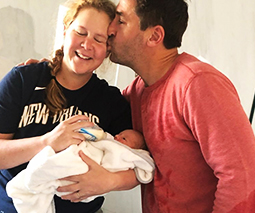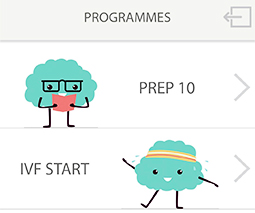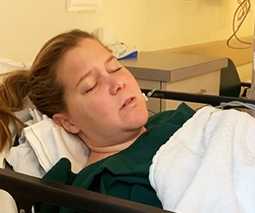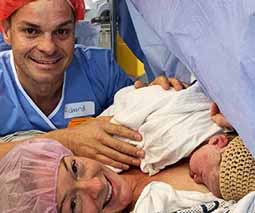4 myths about IVF that are simply untrue

Infertility affects about one in six couples in Australia. Despite this, there are plenty of myths flying about, especially when it comes to IVF.
- New research proves a popular, painful IVF procedure does not work
- What are my options when it comes to my unused embryos?
- Ova and out! Sophie Monk Instagrams her egg retrieval procedure
When you’re trying for a baby, it can be easy to feel lost in statistics and numbers. And even when people try to be well-meaning by sharing their stories, thoughts or facts they’ve collected along the way, it can be confusing.
With that in mind, we sat down with women’s health GP, Dr Sneha Wadwhani, and asked her to set the record straight.
1. You will always know when to stop having IVF
Starting the IVF journey is a personal choice, and determined by your own circumstances entirely. “All these factors make the decision to start or stop IVF treatment very complex and indeed, individual. Ending the journey is exactly the same,” says Sneha, adding that there are many factors that influence this decision.
Age, ovarian reserve, health, the reason for infertility, your finances, how you’re coping with the treatment schedule, your ability to cope with the side effects of the treatment, as well as your support network and relationship should all be taken into account.
Sneha recommends using a clinic you know well, with a team who will understand your psychosocial circumstances as well as your health and financial circumstances.
“You need a team you can trust, and one that will guide you depending on your existing probability of falling pregnant, as well as that in the future. It is often assumed that if you just keep trying it will eventually happen, but sadly that’s not the case,” says Sneha.
“Your probability and chances of successful IVF with a healthy pregnancy change with time and circumstances, so it’s important that your team keeps you informed of what your choices are so you can carefully balance the pros and cons of ongoing treatment, as well as considering the alternatives.”
2. You can start IVF at any age and be successful
Technically as long as there are eggs sperm and a uterus, IVF can be done at any age but this doesn’t mean it will be successful.
“Some service providers claim success rates of up to 37 percent per embryo transfer in patients under 30 years of age, but this can decline to 8.8 percent per embryo transfer in women over 40 years old,” says Sneha.
“As such and with pregnancy, generally we need to be proactive in our thinking and planning for starting a family, as IVF certainly is not a guaranteed method of conception.”
3. ‘Normal’ people can’t afford to do IVF. It’s too expensive
“There are now a number of IVF providers who offer bulk-billing IVF services. Whilst not completely free, some parts of the treatment can be bulk-billed, keeping the costs much lower than some private clinics,” says Sneha.
She explains that costs may vary depending on the drug regimen used and whether a fresh or frozen embryo is created and used, as well as lab costs and specialist fees.
“However, IVF still requires some degree of financial investment so this needs to be carefully considered before embarking on the process.”
4. You will ALWAYS fall pregnant from IVF
According to Sneha, more than 13,500 babies were born as a result of IVF in Australia in 2016/17.
“One in 25 babies in Australia now result from IVF therapy, but that doesn’t mean it’s always successful,” says Sneha.
“Success of IVF depends on multiple factors, namely maternal age, and hence ovarian reserve and egg quality. More women are choosing to have children later in life and as such, we observe more women having IVF therapy in and around their forties, which can certainly affect success rates.”
If these questions and answers have raised any concerns or interest for you, Sneha recommends making an appointment with your own trusted GP to learn more.
The pregnancy journey is not always straightforward, but with the right information, tools and support, you can feel confident about your chances.








